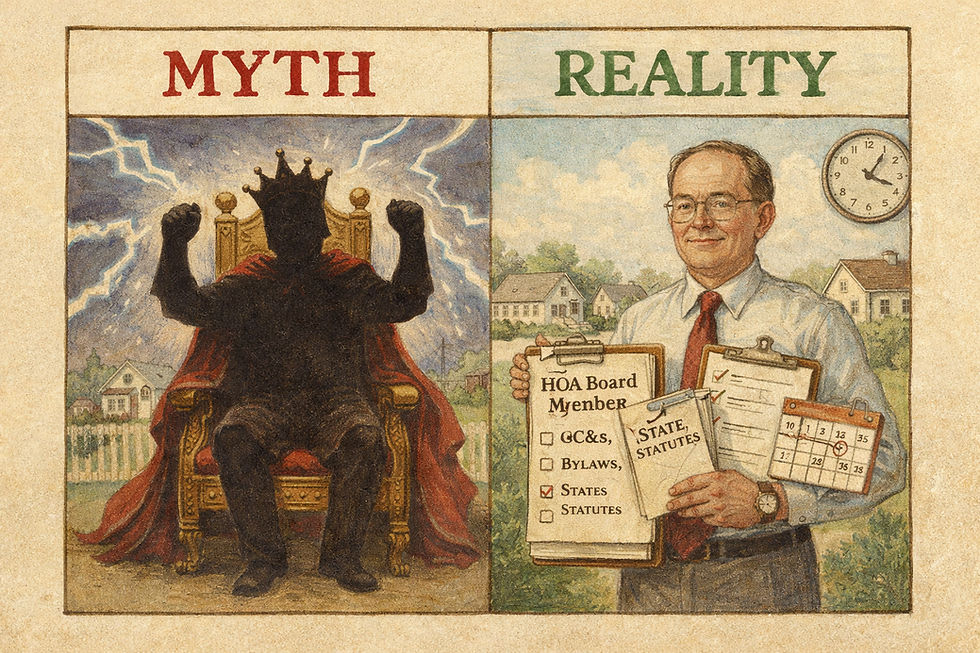Top Legal Issues to Discuss with a Newly Hired HOA Management Company
- José R. Hernández

- Sep 5, 2024
- 2 min read
When engaging a community management company, especially in the context of homeowners associations (HOAs), it is essential to establish a solid foundation for a productive and legally compliant relationship. The effective management of an HOA goes beyond routine operations; it requires a comprehensive understanding of the pertinent legal landscape. By proactively addressing the legal issues outlined in this document, board members can foster transparency, mitigate risks, and ultimately enhance the overall health and sustainability of the community. This introductory overview sets the stage for a deeper exploration of the critical legal areas that must be navigated for successful collaboration with a community management partner.

Contract Clarity: Ensure that the management contract is clear and comprehensive, covering all aspects of service delivery, financial obligations, and termination conditions to avoid misunderstandings down the line.
Regulatory Adherence: Discuss the importance of the company's familiarity with and adherence to relevant laws and regulations, such as property management regulations, fair housing standards, and health and safety codes.
Insurance Coverage: Confirm the extent of the management company's insurance coverage, including required policies like general liability and directors and officers insurance, to protect against possible legal claims.
Financial Oversight: Clarify the procedures for financial management, including budgeting practices, assessment collection, and reporting, ensuring transparency and accountability.
Data Protection Compliance: Investigate how the management company handles personal data in terms of legal obligations under data protection laws, ensuring robust security measures are in place.
Conflict Resolution Procedures: Outline standardized processes for managing disputes that may arise with board members or residents, highlighting the importance of clear mechanisms such as mediation and arbitration.
Vendor Compliance: Discuss the protocols for selecting and managing vendors and contractors, ensuring they comply with local laws, safety standards, and community preferences.
Reporting and Communication: Set expectations for the frequency and format of regular updates from the management company, ensuring that the board is informed on community issues and financial matters.
Addressing these critical legal issues can help the board foster a productive and collaborative relationship with the HOA management company. This involves ensuring clear communication, mutual understanding, and shared goals, all while safeguarding the community's interests. By doing so, the board can effectively manage potential conflicts, enhance transparency, and promote a harmonious living environment for all residents.
Did I miss anything? Please let me know in the comments! Also, please subscribe to our blog to receive a notification when new articles arrive.
At Don Asher Management, we've proudly served the Central Florida community for over 70 years. As a locally-owned company with a strong understanding of the local market, we've cultivated substantial relationships with local and national contractors to provide top-quality services. We're dedicated to meeting your property and HOA management needs with a personalized touch, combining our decades of experience and commitment to detail to provide unmatched service. We're confident in our ability to deliver exceptional services tailored just for you. Choose Don Asher Management - where personalized attention meets professional service.








Comments